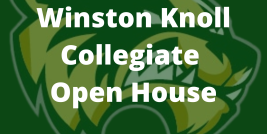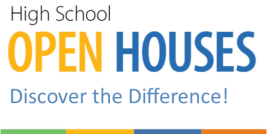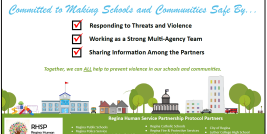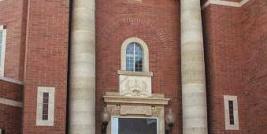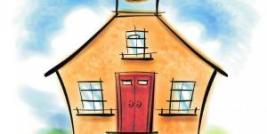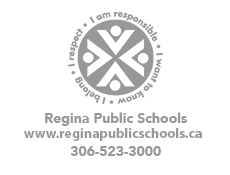School and Community Profile
Winston Knoll Collegiate opened in 1996 and is one of 7 public schools serving grades 9-12 within the Province of Saskatchewan’s capitol city, Regina. In the province of Saskatchewan, education is a shared responsibility between the Ministry of Education and locally elected Boards of Education. Regina School Division is one of the largest divisions within the Public School divisions in Saskatchewan and Winston Knoll is the2nd largest high school within the division. The school’s enrollment comprises of approximately 850 students and over 50 staff. The school is a unique combination of students from the surrounding communities and students who have varied physical and learning disabilities. Winston Knoll Collegiate hosts Advanced Placement courses for enrichment and students have access to the University of Regina Accelerated courses while they are attending high school in English, Early Childhood, Anthropology and Art Design. As well, Knoll hosts a variety of other programs: a Deaf and Hard of Hearing program (DHH), a Functional Integrated Adaptation Program (FIAP), a developmental classroom (DC), and a Supportive Environment Program.
Student Support
At Winston Knoll we have a wide range of support personel to allow for smooth transitions for all levels of learners.
- Guidance - an area for counseling in course selection, post-secondary requirements, scholarships applications, transitioning to the world of work, or connection to outside agency.
- Learning Resource - learning resource teachers (LRTs) provide tutorials, program monitoring, and teacher collaboration regarding individual student needs.
- Transition Room - students who learn best in a small setting, require individualized pacing, or have fallen off track may be scheduled in the transitions room .
- English as an Additional Language - the EAL program offers support to students whose first language is not English and require support to reach a functional level of English. As well as regular academic courses, students may take non-credit English Readiness courses to prepare them for locally developed credit literacy electives where the focus is on basic reading, writing, listening, and speaking.
- Indigenous Advocacy - The Indigenous Advocate Teacher supports Indigenous students academically and socially as they transition through school. As well, the IA collaborates with staff to support the integration of Indigenous histories and culture.
Deaf and Hard of Hearing
The DHH program provides support for students with mild to profound hearing loss. The DHH programming includes the provision of tutorials, note-taking, technological supports and American Sign Language (ASL) Interpreting services. Some DHH students participate in an innovative arts and literacy program. Teaching staff support all learners from graduation and beyond while facilitating the transition from school to work and/or post-secondary education.
Developmental Classroom
The DC program is a life skills program that focuses on everyday skills in communication, healthy living, social skills, money math, and other functional academics. Staff strive to teach positive behaviours and provide many opportunities on meaningful integration in order to develop social skills and foster healthy relationships. As well, staff collaborate with outside agencies so as to provide the best learning environment possible and for smooth transitions out of the school setting.
Functional Integrated Adaptation Program (FIAP)
Our FIAP program emphasizes functional academics, communication, social skills, independent living skills, and vocational programming. Some students will integrate into regular "shop based" classrooms depending on individual student needs and abilities. FIAP students benefit from a collaborative team of teachers, educational assistants, and community resources who plan to ensure meaningful and relevant experiences for all.
Supportive Environment Program (SEP)
Our SEP program is for students who have been identified requiring extra supports to reach graduation requirements. SEP students are provided with more flexibility in their schedule to allow for support from a tutorial teacher and educational assistants. The SEP team, along with community resources, plan to ensure that every students inclusion and intervention goals are met.
Athletic and Extracurricular Programs
Winston Knoll Collegiate is a member of the Regina High School Athletic Association (RHSAA), fielding cross country running, soccer, football, volleyball, basketball, wrestling, hockey, curling, handball, badminton, archery, track and field, and flag football teams. Teams and athletes have won several local and provincial titles over the past years. In addition, Knoll proudly hosts unified sports for our special learners. As well, Knoll students can get involved in our Student Representative Council, Drum Group, Debate Club, Mock Trials, eSports, Gay Straight Alliance, and ACT programs.
Fine and Practical Applied Arts Programs
Winston knoll Collegiate offers Choir, Jazz, Band, Musical Theatre, Drama, and Visual Art as credit courses. Each course provides many opportunities for students to perform both for the school and community audiences. In addition, Martin offers many options in the technical arts providing courses in Communication Media, Photography, Design Studies, Graphic Arts, and Construction to students.
Campus Regina Public
Unique to Regina Public Schools is Campus Regina Public (CRP). CRP provides high school students (Grades 11 and 12) from across the division the opportunity to enroll in a specialty area receiving two high school credit courses, and dual university credits. Each course is industry supported and features approved training that may not be available in their home school. Students will engage in learning opportunities with others who share their passion for a field of study which better supports their learning as they prepare for the transition to post-secondary studies and the workplace. This opportunity is open to all high schools in Regina Public Schools.
Curriculum
The Saskatchewan Ministry of Education defines the curriculum for all Saskatchewan students. The Ministry of Education tracks credits attained in grades 10, 11, and 12 in order for a student to qualify for graduation.
Grading and Ranking
Grades 9-12 are evaluated on a numerical marking system. Academic recognition (Honour Roll) is given to students who achieve a minimum of 79.5% based on 6 classes in grades 9 and 12 and 7 courses in grades 10 and 11. Marks are taken from a predetermined list of courses for each academic year including required, specified and elective courses. Regina Public Schools does not participate in student rankings.

